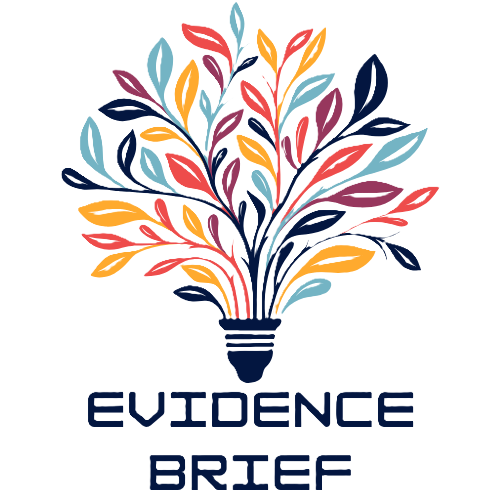Special education degree programs empower compassionate individuals to make a lasting difference in the lives of students with diverse learning needs. These specialized programs equip future educators with essential skills to support children facing various challenges while creating inclusive learning environments where every student can thrive.
For those drawn to both teaching and advocacy a special education degree opens doors to rewarding career opportunities. From working with students who have autism spectrum disorders to helping those with learning disabilities graduates can specialize in areas that match their interests and passion. Today’s programs combine cutting-edge teaching methods behavioral management strategies and technological innovations to prepare educators for the evolving landscape of special education.
What Is a Special Education Degree Program
A special education degree program equips educators with specialized knowledge to teach students with disabilities or exceptional learning needs. These programs focus on developing expertise in differentiated instruction techniques, learning disabilities assessment methods, and individualized education plan (IEP) development.
The curriculum encompasses three core components:
- Educational theory focusing on diverse learning styles, developmental milestones, and cognitive processes
- Practical teaching methods incorporating assistive technologies, behavioral interventions, and classroom modifications
- Clinical experience through supervised student teaching in special education settings
Typical coursework includes:
- Assessment strategies for identifying learning disabilities
- Classroom management techniques for diverse student populations
- Assistive technology integration in special education
- Special education law and policy compliance
- Behavioral intervention strategies
- Communication methods for collaborating with families and specialists
Program levels available include:
| Degree Level | Duration | Focus Areas |
|---|---|---|
| Associate | 2 years | Educational fundamentals, teaching assistant preparation |
| Bachelor’s | 4 years | Comprehensive teaching methods, classroom management |
| Master’s | 2-3 years | Advanced intervention strategies, leadership roles |
| Doctorate | 4-5 years | Research, policy development, program administration |
Students gain hands-on experience through:
- Classroom observations
- Student teaching internships
- Case study analyses
- Behavior management simulations
- Technology integration workshops
- Creating adaptive learning environments
- Implementing evidence-based teaching strategies
- Conducting educational assessments
- Designing individualized instruction plans
- Collaborating with multidisciplinary teams
Types of Special Education Degrees Available

Special education degree programs offer multiple academic pathways to accommodate diverse career goals. Each degree level provides distinct specializations focusing on different aspects of special education instruction.
Bachelor’s Degree Programs
Bachelor’s degree programs in special education establish foundational knowledge for teaching students with disabilities. These 4-year programs include coursework in child development, instructional methods, behavior management strategies, and educational psychology. Students complete 120-130 credit hours covering core subjects like mathematics education, reading instruction, and assessment techniques. The curriculum integrates supervised fieldwork experiences totaling 400-600 hours in diverse classroom settings. Programs offer concentrations in areas such as mild to moderate disabilities, severe disabilities, or early childhood special education.
Master’s Degree Programs
Master’s programs enhance teaching expertise through advanced coursework in specialized interventions and research-based practices. These 30-36 credit programs take 2-3 years to complete while allowing students to maintain teaching positions. The curriculum emphasizes leadership skills, program development, and evidence-based assessment methods. Specialization options include autism spectrum disorders, learning disabilities, emotional behavioral disorders, or gifted education. Students conduct action research projects examining effective teaching strategies in their classroom settings.
Doctoral Programs
Doctoral programs prepare graduates for leadership roles in research, policy development, and higher education. These intensive programs require 60-75 credit hours beyond a master’s degree, typically taking 3-5 years to complete. Students engage in original research, statistical analysis, and advanced study of special education theory. The curriculum includes seminars in educational leadership, grant writing, and program evaluation. Candidates complete a dissertation investigating specific aspects of special education practice or policy. Employment opportunities include university professor positions, educational consultants, or program administrators.
Core Curriculum and Coursework
Special education degree programs feature comprehensive coursework that integrates theoretical knowledge with practical applications. The curriculum emphasizes evidence-based teaching methods alongside specialized instructional strategies for diverse learning needs.
Learning Theories and Development
Learning theories form the foundation of special education curricula through research-based frameworks focused on cognitive development. Students explore Piaget’s developmental stages, Vygotsky’s social learning theory, and Gardner’s multiple intelligences to understand diverse learning patterns. The coursework examines neurological development patterns, cognitive processing systems, and sensory integration techniques. Educational psychology components cover memory formation, information processing, and attention span optimization for students with learning differences. Practical applications include analyzing developmental milestones, identifying learning barriers, and creating adaptive teaching strategies based on individual student profiles.
Behavioral Management Strategies
Behavioral management courses equip educators with proven techniques to create positive learning environments. Students learn Applied Behavior Analysis (ABA) principles, functional behavior assessments, and positive reinforcement methods. The curriculum covers crisis intervention protocols, de-escalation techniques, and individualized behavior support plans. Specific modules focus on:
- Data collection methods for behavior tracking
- Antecedent-behavior-consequence analysis
- Social skills development programs
- Self-regulation teaching strategies
- Positive behavior intervention systems
Teaching modules incorporate real-world case studies demonstrating successful behavior modification techniques in diverse classroom settings. Practical components include creating behavior intervention plans, implementing token economies, and developing classroom management systems.
Essential Skills and Competencies
Special education professionals require specific competencies to create effective learning environments for students with diverse needs. These skills form the foundation for successful teaching practices in special education settings.
Communication and Collaboration
Effective communication underpins successful special education practice through multiple channels of interaction. Special educators communicate daily with students, parents, general education teachers, therapists, administrators, and support staff. Written documentation includes crafting detailed Individualized Education Programs (IEPs), progress reports, and behavior intervention plans. Professional collaboration involves participating in team meetings, coordinating with related service providers, and maintaining regular contact with families through email, phone calls, and face-to-face conferences. Cross-cultural communication skills enable educators to work effectively with diverse families while demonstrating cultural sensitivity and awareness.
Assessment and Evaluation
Assessment skills enable special educators to measure student progress and adjust instruction accordingly. Educators regularly conduct formal assessments using standardized tests, curriculum-based measurements, and diagnostic tools to determine academic levels and identify learning gaps. Data collection methods include systematic observation, portfolio assessment, and performance-based evaluations to track behavioral progress. Analysis of assessment data guides instructional planning, IEP development, and goal setting for individual students. Progress monitoring tools measure academic growth, behavioral changes, and social development throughout the school year. Technology integration enhances assessment practices through digital platforms, adaptive testing software, and automated data collection systems.
Career Opportunities and Growth
Special education degree programs open diverse career paths in educational institutions, healthcare facilities, and community organizations. The field offers multiple advancement opportunities through specialized roles and leadership positions.
Teaching Positions
Special education teachers work in public schools, private institutions, and specialized learning centers at various grade levels. Elementary positions focus on foundational skills development through individualized instruction in reading, writing, and math. Secondary level positions emphasize life skills training, vocational preparation, and transition planning. Teaching specialists earn between $50,000 to $85,000 annually, with experienced professionals commanding higher salaries in urban districts.
| Teaching Position | Average Salary | Required Education |
|---|---|---|
| Elementary | $50,000-$65,000 | Bachelor’s Degree |
| Secondary | $55,000-$70,000 | Bachelor’s Degree |
| Specialist | $65,000-$85,000 | Master’s Degree |
Administrative Roles
Administrative positions include special education coordinators, program directors, and district supervisors who oversee educational programs. These roles involve curriculum development, staff supervision, budget management, and compliance monitoring. Department chairs coordinate with general education teachers to implement inclusive practices. District-level administrators develop policies, manage resources, and ensure compliance with federal regulations.
| Administrative Role | Average Salary | Required Experience |
|---|---|---|
| Program Director | $75,000-$95,000 | 5+ years |
| District Supervisor | $85,000-$110,000 | 7+ years |
| Department Chair | $70,000-$90,000 | 3+ years |
Licensing and Certification Requirements
Special education teachers require state licensure to work in public schools across the United States. Each state maintains specific licensing requirements that include completing an accredited teacher preparation program earning a bachelor’s degree.
Initial teaching licenses include:
- Provisional License: Valid for 2-3 years while completing additional requirements
- Standard License: Full teaching credential valid for 5 years
- Emergency License: Temporary credential for high-need areas
State certification requirements encompass:
- Passing scores on Praxis exams or state-specific teacher tests
- Student teaching experience (400-600 supervised hours)
- Background checks clearance
- Professional development hours
| License Type | Validity Period | Requirements |
|---|---|---|
| Provisional | 2-3 years | Bachelor’s degree, basic testing |
| Standard | 5 years | Teaching experience, advanced testing |
| Emergency | 1 year | Bachelor’s degree, district request |
Additional endorsements enhance teaching credentials:
- Autism Spectrum Disorders (ASD)
- Learning Disabilities (LD)
- Emotional Behavioral Disorders (EBD)
- Multiple Disabilities (MD)
License renewal involves:
- Completing 100-200 professional development hours
- Maintaining employment in special education
- Documenting successful teaching evaluations
- Submitting renewal fees ($50-$100)
Interstate teaching agreements allow educators to transfer credentials between participating states through reciprocity programs. Private schools maintain different requirements which vary by institution though many seek licensed special educators.
Program Cost and Financial Aid Options
The average tuition cost for special education degree programs varies based on degree level, institution type and location.
| Degree Level | Public Institution (In-State) | Private Institution |
|---|---|---|
| Associate | $6,000 – $12,000/year | $15,000 – $25,000/year |
| Bachelor’s | $9,000 – $20,000/year | $25,000 – $45,000/year |
| Master’s | $12,000 – $25,000/year | $30,000 – $50,000/year |
| Doctoral | $15,000 – $35,000/year | $35,000 – $60,000/year |
Several financial aid options help offset educational expenses:
- Federal grants include TEACH Grants offering up to $4,000 annually for students pursuing teaching careers
- State-specific grants provide funding based on academic merit or financial need
- Work-study programs allow students to earn money through campus employment
- Loan forgiveness programs cancel up to $17,500 in federal student loans after 5 years of teaching
- Institutional scholarships range from $1,000 to full tuition coverage at specific universities
Professional organizations offer additional funding opportunities:
- Council for Exceptional Children awards multiple $2,500 scholarships annually
- National Association of Special Education Teachers provides $5,000 grants
- American Federation of Teachers distributes $1,000 to $5,000 merit-based awards
- State education associations offer regional scholarships ranging from $500 to $3,000
Military service members access specialized benefits:
- GI Bill covers full tuition at public institutions
- Yellow Ribbon Program matches institutional aid for private schools
- Military Tuition Assistance provides up to $4,500 annually for active duty personnel
These financial resources make special education degrees more accessible while reducing student debt burden.
Conclusion
A special education degree opens doors to rewarding careers focused on making a difference in students’ lives. These comprehensive programs equip educators with essential skills needed to create inclusive learning environments and support diverse student needs.
The field continues to evolve with new teaching methods technological advancements and increased understanding of learning differences. Whether pursuing an associate bachelor’s master’s or doctoral degree graduates can find fulfilling roles in various educational settings.
For those passionate about helping others reach their full potential a special education degree provides the foundation for a meaningful career that transforms lives one student at a time.

